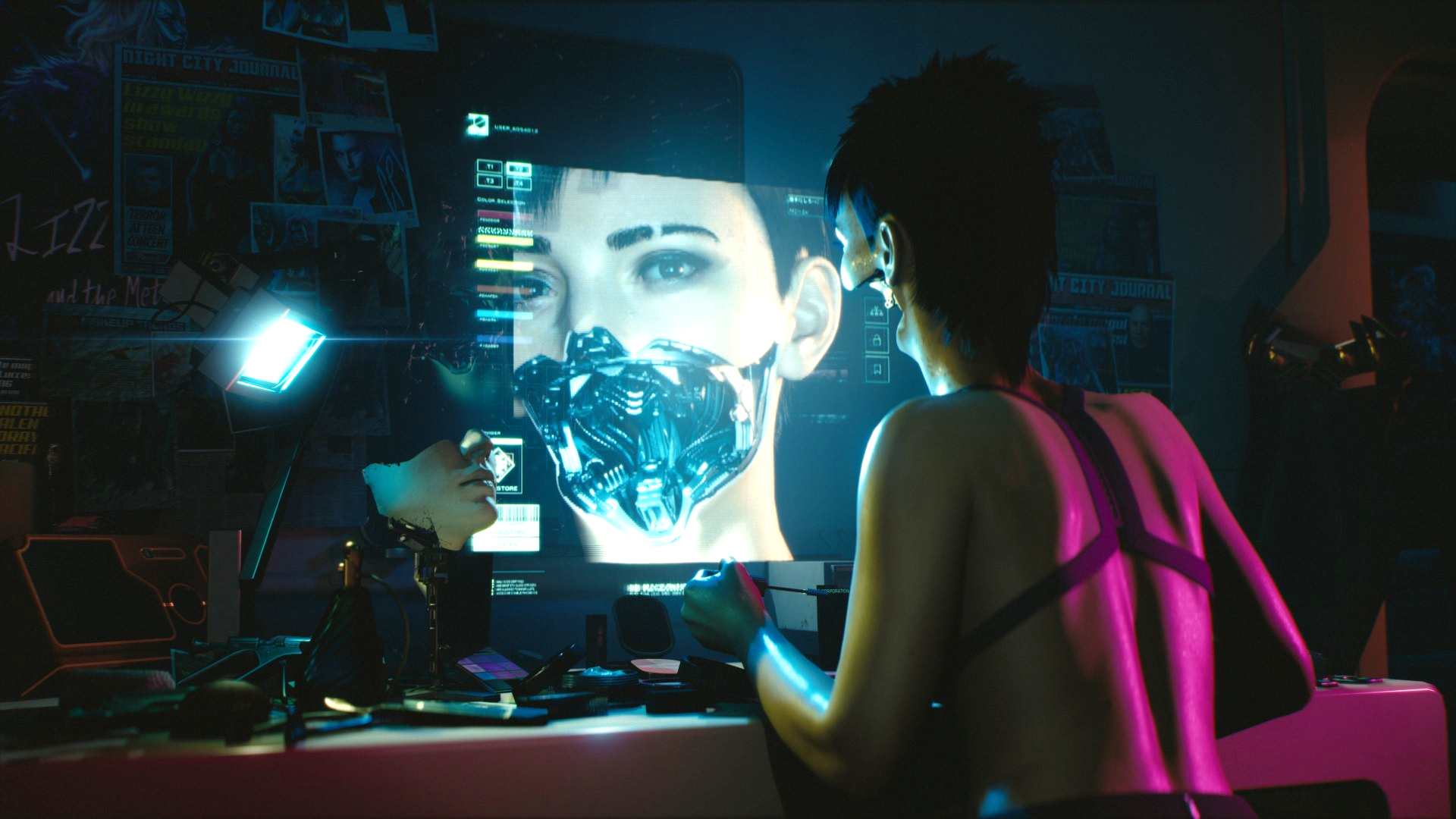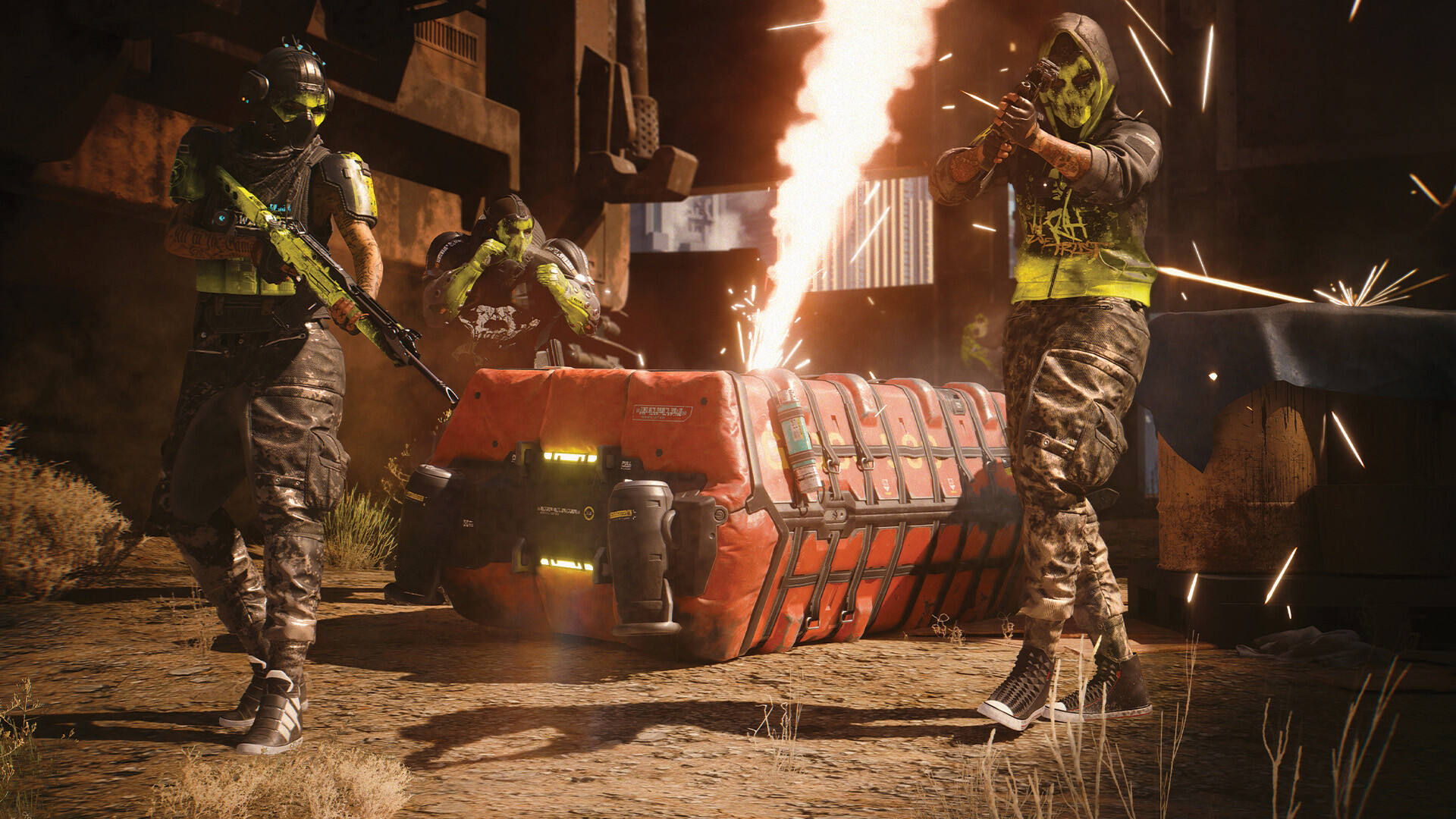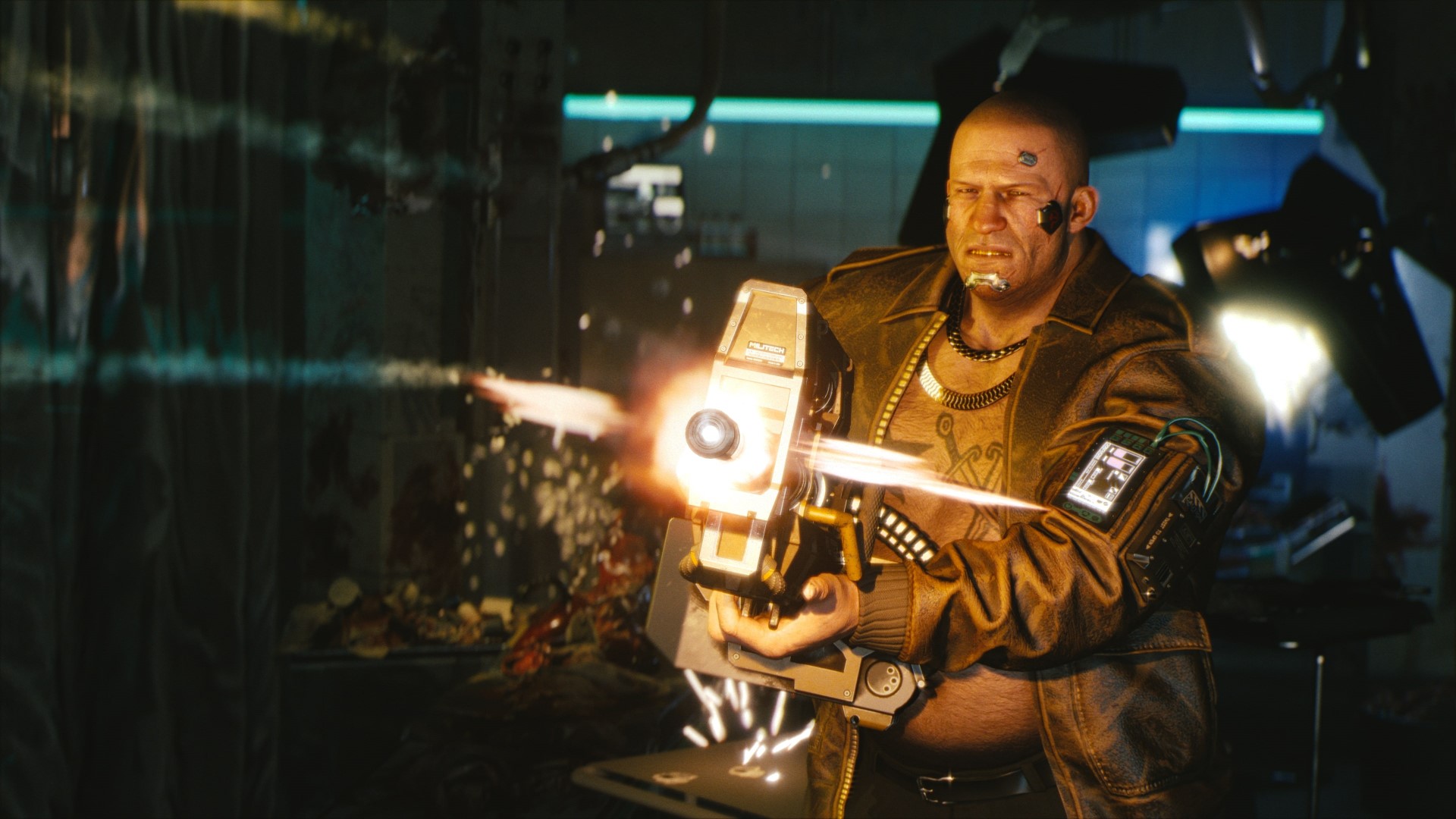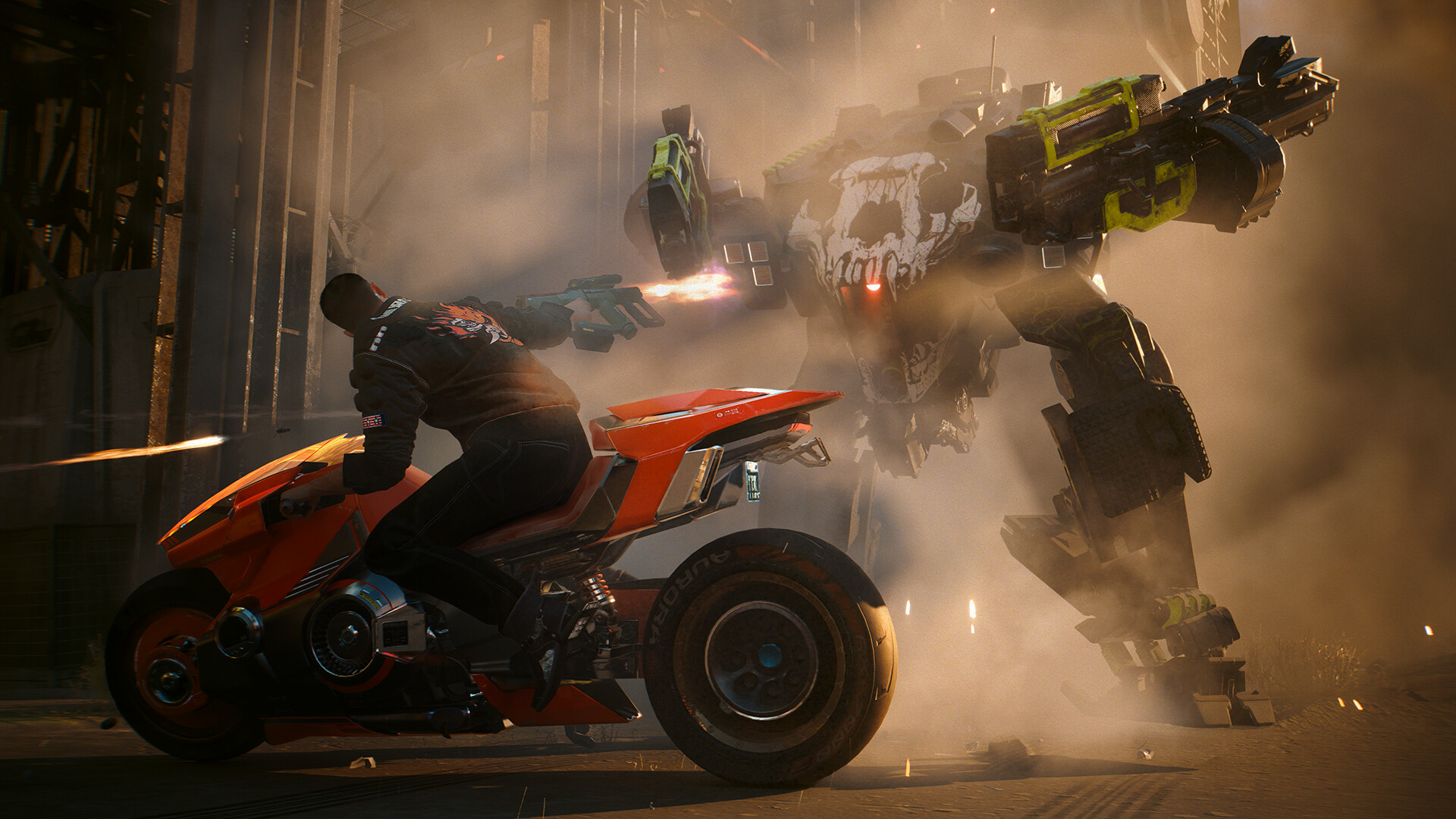In Cyberpunk 2077 Phantom Liberty, life is cheap and cyberware is expensive
The flesh is weak

Cyberpunk 2077 may have started out as a power fantasy, but the sci-fi RPG has a new sense of depth thanks to the recent 2.0 update and the Phantom Liberty expansion. The game’s economy and pacing have been turned on their head, finally allowing Cyberpunk 2077 to cut to the core of what makes a great cyberpunk story. The new cybernetic implant mechanics, in particular, force you to confront the loss of your own humanity, as it becomes ground down by the unfeeling capitalist machines that prop up the game's setting.
Update 2.0 massively overhauls the game’s cyberware enhancement system, making it fundamental to your character’s build. No matter your playstyle, there are cybernetics that you’d be foolish to do without. Hackers can enjoy cerebral implants that allow them to pull off more complex digital attacks, while brawnier mercenaries can improve their survivability with denser bone marrow and even armor plating.
In fact, survivability in Cyberpunk 2077 is now almost wholly tied to cyberware, with one of 2.0’s most significant changes being the choice to make implants, not clothing, the source of your armor-based damage mitigation.
Cyberpunk 2077 2.0 forces you to become a slave to the upgrade
What’s more, thanks to the new system of item tiers and the Diablo 4-esque stat buffs attached to each implant, you’ll always find yourself on the lookout for a new upgrade that better suits your playstyle. It's here that Cyberpunk 2077 2.0’s dark magic resides.
As you level up, your enemies become stronger; this means that in order to stay ahead of the curve, you’ll need access to better cyberware. This, in turn, requires you to make more money via missions - an undertaking that usually results in leveling up, causing the process to repeat. It’s a vicious circle, but it’s the most cyberpunk thing in the entire game - turning the protagonist’s body into a site of perpetual consumerism.
Cyberpunk 2077 2.0 forces you to become a slave to the upgrade, keeping your body equipped with the best cybernetics you can, lest you fall behind the game’s progression curve.
Time is money

If you’re not careful, this need will take you to some dark places. Despite stealth and non-violence very much being possibilities in Cyberpunk 2077 2.0, a brutal murder spree remains the easiest way to make a quick buck. While it is lucrative to take on a gig to steal some data from a gang hideout, the payout is far greater if you go in guns blazing, murdering and looting your way toward your objective before high-tailing it out of there. Loot can be turned into money, and money into better cybernetics. The cycle continues. Life is cheap, but guns are valuable.
Sign up for breaking news, reviews, opinion, top tech deals, and more.
Of course, you could be more high-minded, taking the time for a stealthy approach. You could even loot as you go. However, this method has two problems: first, it’s slow, and second, it gives you fewer chances to play with your new cybernetic toys. To muddy the waters further, the game offers a wide range of cybernetic upgrades for stealth, too. Why sneak around on your noisy meat legs when you could switch to a quieter, faster, factory-built pair?
Storming a gang stronghold ceases to become a difficult prospect and instead feels like a fun diversion
As you continue to upgrade, the urge to take advantage of your augmentations compounds. After all, what’s the point of installing a wrist-mounted grenade launcher if you don’t get the pleasure of using it to blast your unsuspecting enemies into chunks? As you become more superhuman, you become, well, less human. Your expensive augmentations and cyborg superpowers make the lives of NPCs seem lesser by comparison. You cease to be a plucky underdog and, instead, become a mechanical murder machine able to pulverize and loot enemies with ever-increasing efficiency.
This, in turn, causes the act of killing to become more trivial. Storming a gang stronghold ceases to become a challenging prospect. Instead, it feels like a fun diversion, your increasing power level creating an ever-wider emotional gulf between you and the lives you take.
Let the bodies hit the floor

Of course, the sword of cybernetics cuts both ways. Fail to upgrade, and your character will lack the tools and armor they need to survive the many gauntlets and challenges of Cyberpunk 2077. In this way, your survivability becomes contingent on your cash flow in a real sense, trapping you between a rock and a hard place: upgrade and lose your humanity, or preserve a fragile sense of self at the cost of your agency.
This trap perfectly distils the bleak themes at the heart of the cyberpunk genre. In this newest version of Cyberpunk 2077, if you buy into the cycle of upgrades and obsolescence foisted upon you by corporate capitalism, you become its pawn, but, fail to do so, and you’ll be trampled underneath the boots of those who’ve embraced that capitalism.

Thanks to patch 2.0’s improvements to enemy behavior and loadouts, even humble gangers will use their own cybernetics against you. Enemy melee combatants will rapidly dodge attacks with reflex upgrades of their own, while enemy hackers attempt to fry your systems. Come to these fights unprepared, and your foes will flatline you in short order.
By putting you in this nasty situation, Cyberpunk 2077 becomes the most cyberpunk it’s ever been, showing that power has both a literal and psychological cost in the world of megacorporations. Even the most freewheeling and anti-authoritarian playthrough will still force you to treat your body like it’s a smartphone or a PC, reducing your character to a consumer product in constant need of upgrades and improvements. In the corporate dystopia, it’s expensive upgrades that give people their value, not their humanity.
Want more thought-provoking titles? Check out our lists of the best story games and the best RPGs.

An editor and freelance journalist, Cat Bussell has been writing about video games for more than four years and, frankly, she’s developed a taste for it. As seen on TechRadar, Technopedia, The Gamer, Wargamer, and SUPERJUMP, Cat’s reviews, features, and guides are lovingly curated for your reading pleasure.
A Cambridge graduate, recovering bartender, and Cloud Strife enjoyer, Cat’s foremost mission is to bring you the best coverage she can, whether that’s through helpful guides, even-handed reviews, or thought-provoking features. She’s interviewed indie darlings, triple-A greats, and legendary voice actors, all to help you get closer to the action. When she’s not writing, Cat can be found sticking her neck into a fresh RPG or running yet another Dungeons & Dragons game.